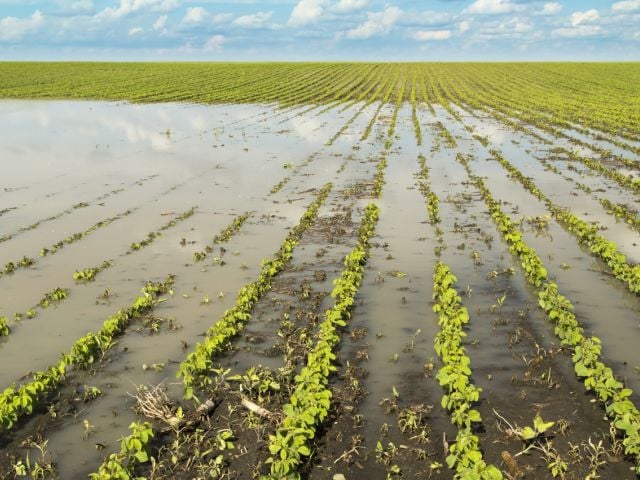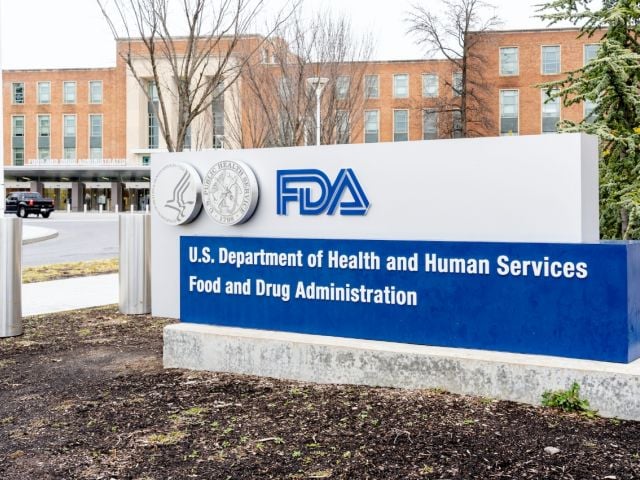Displaying 4369 - 4392 of 7454
From my book “What The Fork Are You Eating?” © Stefanie Sacks, 2014
Like many legumes, white beans are produced by plants that grow to about 2 feet tall and yield many 5-inch pods with five or six seeds or beans each. They are usually found dried in bags, and in most grocery stores’ bulk section, as well as cooked, in jars, boxes or cans.
Cook: Like many other legumes, white beans can be

EWG news roundup (5/13): Crop insurance costs skyrocket, EWG launches investigative journalism site, National Women's Health Week and more

EWG finds over half of people surveyed think tap water is unsafe

Four infant formula questions for Commissioner Califf
Several factors have contributed to the infant formula crisis we are witnessing now and, though the operations at Abbott Nutrition warrant scrutiny, we must look at how failures at the Food and Drug...

In the Mississippi River region, billions of dollars spent on crop insurance payouts could have been used instead to retire over 300,000 acres of frequently flooded fields

For decades, the FDA knew toxic 'forever chemicals' were dangerous but continued to allow their use

New tests find ‘forever chemicals’ still in many fast food wrappers

State audit slams California utility regulators for lax wildfire safety oversight

EWG applauds Biden’s budget for prioritizing FDA food and cosmetics chemical safety

Change the code, not the climate
A campaign to push bitcoin to change its software code to use far less energy was launched today by the Environmental Working Group, Greenpeace USA and several groups battling bitcoin mining...

Change the code, not the climate: The campaign to clean up bitcoin
This campaign is asking the bitcoin community: Will you immediately commit to use your investments and your influence to clean up bitcoin?

Spring is in the air – let’s make sure toxic chemicals aren’t

EWG news roundup (4/1): Bitcoin’s climate problem, Biden’s budget prioritizes chemicals in food and cosmetics, and more
This week, the Environmental Working Group joined Greenpeace USA and other groups to kick off the campaign to Change the Code, Not the Climate, which seeks to push bitcoin to change its software code...
For decades, polluters knew PFAS chemicals were dangerous but hid risks from public

EWG news roundup (1/28): EWG’s crop insurance database, ‘forever chemicals’ in various textiles and more
EWG news roundup (1/28): Here’s some news you can use going into the weekend.

Pesticide peril: Toxic threats to farmworkers and families in Ventura County

Más de 32 millones de libras de pesticidas tóxicos, entre ellos muchos relacionados con el cáncer y los problemas respiratorios y de desarrollo, se han utilizado en los campos de cultivo del condado de Ventura entre 2015 y 2020, incluyendo cerca de las escuelas y los hogares, según un análisis pionero de los datos de pesticidas de California realizado por Environmental Working Group.

Poll: Voters overwhelmingly oppose California plan to crush popular rooftop solar program

For decades, the FDA knew ‘forever chemicals’ were harmful but failed to act

Why is cancer-causing benzene widespread in personal care products?

Cleaning products emit hundreds of hazardous chemicals, new study finds

Despite new climate-smart funds, agricultural conservation programs remain oversubscribed
The Inflation Reduction Act, or IRA, set aside $19.5 billion for agricultural conservation programs that pay farmers to implement conservation practices that reduce agriculture’s greenhouse gas...

Coalition letter to Congress opposing efforts to block state and local pesticide laws
Despite record farm income and subsidies, some seek even more handouts
